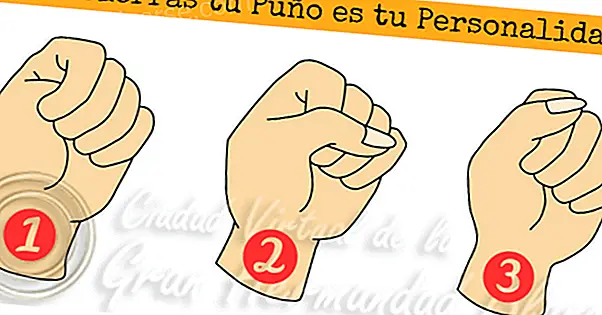
Losing patience is losing the battle. Gandhi
Impatience is anger, and expressing anger can be addictive. Why? Because there is immediate but brief relief from the stress caused by anger. It can be compared to eating when you are anxious. It is a short-term gain, and a long-term suffering.
Another reason why anger can become addictive is when it becomes a habit, when we let it control us. And it may escalate from minor irritability to an outburst of rage with our loved ones. And we usually deny the effects of anger on others and ourselves.
When everything goes well in our relationships, there is no problem. But at some point someone makes us wait more for the account, contradicts us or tells us something we like or makes us feel offended. There the wave of anger and intolerance begins again.
And it becomes cyclic.
How to get out of this vicious circle? Cultivate the virtue of patience .
We need patience in the moments when we are receiving something that we do not want or do not like or are not getting what we do want. Our ego comes into play. The ego feels vulnerable and afraid of not achieving what is "yours" and protecting itself.
What is patience?
The definition of patience that the dictionary gives us is: Ability to suffer and tolerate misfortunes and adversities or annoying or offensive things, with strength, without complaining or rebelling.// Calm or tranquility to wait.
As Lao Tse's wisdom tells us: “Be patient. Wait for the mud to settle and the water to clear. Remain still until the right action emerges on its own. ”
But ... how to be patient?
Patience is a process by which we must go within ourselves, and get in touch with our strongest and at the same time most sensitive part. Feel that energy of discomfort and disagreement, that anger, and observe it. Do not download it outside of us.
We must for that train our mind and have the courage to do so. Patience is making contact with emotion before reacting to an event that drives us to criticize, shout, defend ourselves, or maybe eat.

It is not a personality trait that is easy to develop, but it is worth the effort to be patient since you will achieve more happiness, less stress, better relationships . But it requires patience to acquire this new skill. It's like when you want to learn to play a musical instrument or a language, it doesn't happen by magic. You must practice .
The stages to control yourself in an outburst of impatience are:
1. Feel the anger
Pay attention when irritation begins. You must learn to identify what things trigger impatience. It can be a specific person or situation. When you identify it, it will be easier for you to know why it is happening.
Focus on your feelings and feelings . You will realize that the feeling of pain you feel, of resistance, is almost unbearable, you don't want it to be happening.
2. Talk to yourself
Now the important thing is to stop the matter before you explode and then feel bad, as you know what happens. While you feel how vulnerable you are, stop thinking about the situation that led you to feel anger. Remove from your mind how wrong they are or how bad things did or how bad you did them.
3. Breathe and count to ten
The old trick of counting to ten is still valid. Breathe slowly and while you count you will help lower your heart rate, relax your body and emotionally distance yourself from the situation . If possible, elongate your muscles or at least try to relax them, since they are very likely to be tense.
Remember that you can manage your emotions and not let them handle you. You are in charge and you can make the choice of how to react to the situations that arise in your day to day. You can choose to be patient or choose not to be, it is up to you.
SOURCES:
Mind tools editorial team. (2017). How to Be Patient. 08/16/2017, by Mind Tools Website: https://www.mindtools.com/pages/article/newTCS_78.htm
Jane Bolton (2011). Does Your Relationship Feel Like a Curse or Curriculum ?. 08/16/2017, from Psychology Today Website: https://www.psychologytoday.com/blog/your-zesty-self






